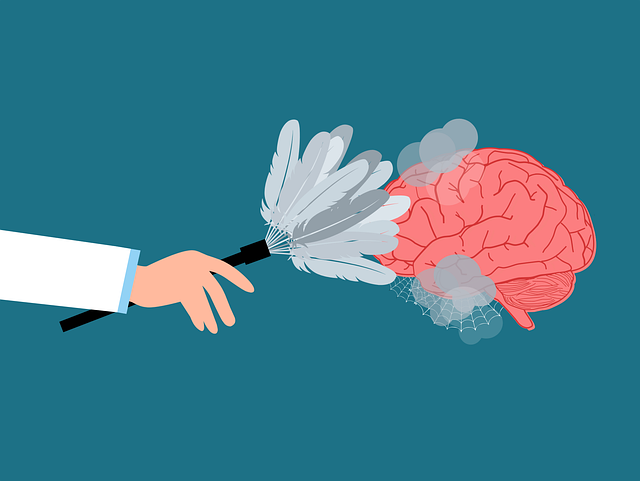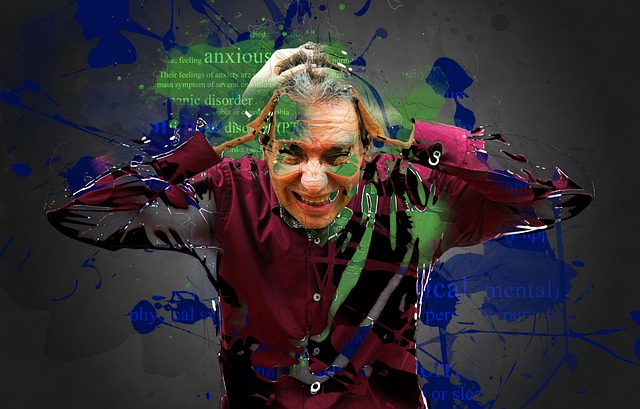Facilitating effective therapy for elders and family counseling requires a nuanced approach addressing reduced mobility, cognitive changes, and social isolation. Key strategies include open communication, non-verbal cue consideration, and sensory needs management. Building trust, confidentiality, and non-judgmental support create safe spaces essential for sharing and healing. Incorporating techniques like cognitive-behavioral therapy (CBT) and family counseling sessions enhances group dynamics. Podcasts and trauma support services cater to diverse individual needs. Success is measured through improved participation, communication, emotional awareness, and reduced anxiety or depression symptoms. Adaptability and burnout prevention ensure optimal engagement and empower elders to manage their mental wellness journeys.
Mental wellness group facilitation techniques are invaluable in supporting elderly clients, addressing their unique needs in group settings. This article explores strategies for creating safe, supportive environments conducive to effective counseling. We delve into facilitating open dialogue, encouraging participation and vulnerability, and incorporating tailored therapeutic techniques. Additionally, we discuss measuring success and adapting strategies for optimal group therapy, emphasizing the role of family counseling in elder mental wellness.
- Understanding the Unique Needs of Elderly Clients in Group Settings
- Building a Safe and Supportive Environment for Effective Counseling
- Facilitating Open Dialogue: Encouraging Participation and Vulnerability
- Incorporating Therapeutic Techniques Tailored for Mental Wellness Groups
- Measuring Success and Adapting Strategies for Optimal Group Therapy
Understanding the Unique Needs of Elderly Clients in Group Settings

In group settings, facilitating therapy for elders requires a nuanced approach to cater to their unique needs and challenges. Many elderly clients bring a wealth of life experience but may also face specific barriers such as reduced mobility, cognitive changes, and social isolation. Family counseling can play a pivotal role in these cases, involving not only the elder but also their caregivers and relatives to provide comprehensive support. By acknowledging the intergenerational impact of mental health issues, facilitators can create an inclusive environment that respects individual differences.
Understanding emotional healing processes is crucial when working with the elderly. Group dynamics should encourage open communication while considering non-verbal cues and sensory needs. Incorporating stress management techniques from our Mental Wellness Podcast Series Production can offer practical tools for coping in a group setting, ensuring participants feel heard, respected, and empowered to navigate their mental wellness journeys alongside peers.
Building a Safe and Supportive Environment for Effective Counseling

Creating a safe and supportive environment is paramount for effective counseling sessions, especially when facilitating therapy for elders or family counseling. This begins with establishing trust and ensuring confidentiality to encourage open communication. Facilitators must create a non-judgmental space where individuals feel comfortable sharing their experiences and emotions freely.
In the context of mental health policy analysis and advocacy, understanding the unique needs and concerns of elderly clients is essential. By acknowledging the potential for ageism and other barriers, facilitators can foster an inclusive atmosphere. This involves adapting counseling techniques to suit diverse learning styles and addressing any cultural or linguistic differences. Effective facilitation also includes teaching coping strategies and promoting self-care practices, ensuring a holistic approach to emotional healing processes.
Facilitating Open Dialogue: Encouraging Participation and Vulnerability

In a mental wellness group setting, facilitating open dialogue is an essential technique to foster a supportive and healing environment. Encouraging participation from all members breaks down barriers and promotes a sense of community. Elders often benefit from family counseling in these groups, as it provides a safe space to share personal struggles and gain insights from peers facing similar challenges. By creating an atmosphere of vulnerability, participants can develop emotional intelligence—a key aspect of stress reduction methods. This openness allows individuals to explore their feelings, fostering self-care routine development for better mental health.
Facilitators play a crucial role in guiding these conversations, ensuring every voice is heard and respected. They encourage active listening among members, fostering an empathetic exchange that can be powerful in emotional support. Such interactions not only enhance coping strategies but also offer unique perspectives on managing life’s challenges, which are valuable for both therapy for elders and family counseling settings.
Incorporating Therapeutic Techniques Tailored for Mental Wellness Groups

Incorporating therapeutic techniques tailored for mental wellness groups is a potent strategy to enhance group dynamics and cater to diverse needs. For elders, family counseling sessions can be adapted to foster meaningful connections and support systems within the group setting. Techniques such as cognitive-behavioral therapy (CBT) offer practical tools for managing stress, anxiety, and depression, commonly experienced by this demographic. Group members can learn coping strategies, share experiences, and provide mutual support, creating a safe space for emotional expression.
The production of a Mental Wellness Podcast Series or Trauma Support Services within these groups can further enrich the therapeutic experience. By incorporating various modalities, facilitators can address individual needs, whether it’s helping individuals process past traumas, manage chronic stress, or simply providing a platform for peer-to-peer support. Moreover, focusing on burnout prevention through structured activities and mindfulness exercises ensures that group members remain engaged and resilient throughout their mental wellness journey.
Measuring Success and Adapting Strategies for Optimal Group Therapy

Measuring success and adapting strategies are integral parts of facilitating effective group therapy sessions, especially in addressing mental wellness among elders. In the context of therapy for elders and family counseling, assessing progress involves observing individual and collective improvements. This could manifest as increased participation, improved communication, heightened emotional awareness, or a reduction in symptoms related to anxiety and depression. Facilitators should also consider qualitative feedback from group members to gauge their satisfaction and perceived benefits.
Adaptability is key; facilitators must be adept at adjusting their approach based on the dynamics of the group. This may include incorporating burnout prevention strategies for healthcare providers to support both the elders in their care and themselves. By recognizing when a particular technique resonates or falls flat, facilitators can tailor future sessions, ensuring optimal engagement and progress. This adaptive process encourages a therapeutic environment that cultivates mind over matter principles, empowering group members to take ownership of their mental wellness journeys.
Mental wellness group facilitation techniques, tailored for elderly clients through family counseling, are essential in promoting open dialogue and fostering a safe space. By understanding unique needs, building supportive environments, and incorporating therapeutic techniques, facilitators can encourage vulnerability and meaningful participation. Measuring success involves adapting strategies based on client progress, ensuring optimal group therapy outcomes. These practices revolutionize mental health support, catering to the specific needs of elders navigating their journeys with guidance and care.














